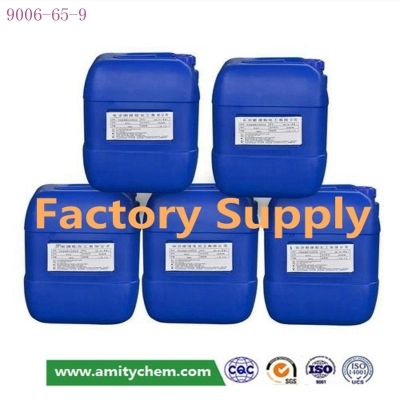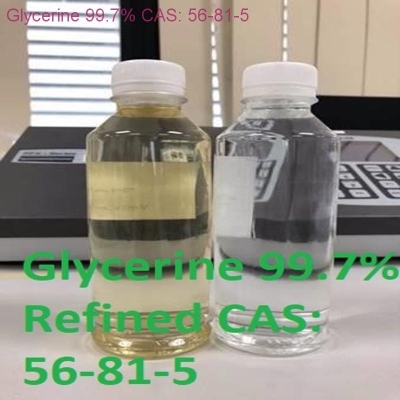-
Categories
-
Pharmaceutical Intermediates
-
Active Pharmaceutical Ingredients
-
Food Additives
- Industrial Coatings
- Agrochemicals
- Dyes and Pigments
- Surfactant
- Flavors and Fragrances
- Chemical Reagents
- Catalyst and Auxiliary
- Natural Products
- Inorganic Chemistry
-
Organic Chemistry
-
Biochemical Engineering
- Analytical Chemistry
- Cosmetic Ingredient
-
Pharmaceutical Intermediates
Promotion
ECHEMI Mall
Wholesale
Weekly Price
Exhibition
News
-
Trade Service
iNature monocarboxylate transporter 4 (MCT4) is a high-affinity lactate transporter mainly involved in maintaining intracellular pH homeostasis and is highly expressed in different tumors
.
However, the role of MCT4 in regulating the immune response against hepatocellular carcinoma (HCC) remains unknown
.
On January 19, 2022, a research paper entitled "MCT4 inhibition potentiates hepatocellular carcinoma immunotherapy via enhancing T cell infiltration and immune attack" was published online by Hepatology (IF=17) in collaboration with Fudan University Shi Yinghong and Fan Jia.
Overexpressed in HCC, which is associated with poor patient prognosis
.
Genetic or pharmacological inhibition of MCT4 with VB124, a potent MCT4 inhibitor, inhibits HCC tumor growth in an immunocompetent mouse model by enhancing CD8+ T cell infiltration and cytotoxicity
.
This improved immunotherapy response through MCT4 targeting is due to combined consequences characterized by ameliorated acidification of the tumor microenvironment (TME) and enhanced CXCL9/CXCL10 secretion induced by the ROS/NF-κB signaling pathway
.
Combined MCT4 inhibition enhanced the therapeutic efficacy of anti-PD-1 immunotherapy in HCC and prolonged survival in mice
.
Furthermore, higher MCT4 expression was observed in tumor tissue from non-responding HCC patients who received neoadjuvant toripalimab therapy
.
Taken together, our findings demonstrate a tumor-intrinsic function of MCT4's lactate export in generating an immunosuppressive HCC milieu and demonstrate proof of concept for targeting MCT4 in HCC immunotherapeutic approaches
.
The development of cancer immunotherapy over the past few decades has changed the landscape of cancer treatment
.
Of the various types of cancer immunotherapy, immune checkpoint inhibitors (ICIs) have the broadest impact on antibodies against programmed cell death 1 (PD-1) and PD1 ligand 1 (PD-L1) checkpoint molecules
.
However, in reported cases of multiple cancer types, more than 60% of patients develop resistance to immunotherapy; this resistance may be caused by a variety of factors, including abnormal metabolic properties of tumor cells
.
Tumor cells are able to construct an immunosuppressive microenvironment by competing for essential nutrients or by limiting the metabolic fitness of immune cells
.
Therefore, an in-depth understanding of the metabolic pathways involved in immune evasion has become the focus of intensive research
.
To meet abnormal biosynthetic demands, tumor cells increase glucose uptake through glycolysis, leading to lactate accumulation within the TME
.
High levels of lactate promote carcinogenesis, tumor progression and metastasis
.
Furthermore, dysregulation of glycolysis and acidification in the TME has been shown to impair effective antitumor immune responses
.
Recent studies have also reported combined strategies targeting tumor glycolysis and immune checkpoints
.
Monocarboxylate transporters (MCTs) are transmembrane proteins that facilitate the transport of important cellular nutrients, including pyruvate, lactate, and ketone bodies, and are effective in maintaining intracellular metabolism and pH balance
.
MCT1-MCT4 have been extensively characterized in several cancers; in particular, MCT1 and MCT4 are upregulated during tumor progression and are therefore considered novel therapeutic targets for cancer
.
However, the researchers focused more on MCT1-mediated lactate and pyruvate entry from the TME than MCT1's lactate efflux capacity
.
MCT4, but not MCT1 and MCT2, enables cancer cells to efficiently export lactate in a high lactate microenvironment
.
A growing number of studies have shown that overexpression of MCT4 is associated with poor prognosis in a variety of cancers, including HCC patients
.
Therefore, the main function of MCT4 as a glycolysis regulator and its role in antitumor immune responses remain to be further elucidated
.
Here, the study observed that overexpression of MCT4 was associated with poor prognosis in HCC patients and resulted in attenuated CD8+ T cell recruitment and activity in a mouse model of HCC
.
Mechanistically, MCT4 inhibition not only effectively blocked TME acidification, but also induced CXCL9 and CXCL10 expression through the ROS/NF-kB signaling pathway
.
Furthermore, this study found that genetic or pharmacological inhibition of MCT4 significantly enhanced anti-PD-1 immunotherapy in tumor mouse models, and higher levels of MCT4 were observed in tumor tissues of non-responsive HCC patients receiving toripalimab neoadjuvant therapy express
.
Taken together, the findings may provide new opportunities for immunotherapy-resistant HCC patients Reference news: https://aasldpubs.
onlinelibrary.
wiley.
com/doi/10.
1002/hep.
32348
.
However, the role of MCT4 in regulating the immune response against hepatocellular carcinoma (HCC) remains unknown
.
On January 19, 2022, a research paper entitled "MCT4 inhibition potentiates hepatocellular carcinoma immunotherapy via enhancing T cell infiltration and immune attack" was published online by Hepatology (IF=17) in collaboration with Fudan University Shi Yinghong and Fan Jia.
Overexpressed in HCC, which is associated with poor patient prognosis
.
Genetic or pharmacological inhibition of MCT4 with VB124, a potent MCT4 inhibitor, inhibits HCC tumor growth in an immunocompetent mouse model by enhancing CD8+ T cell infiltration and cytotoxicity
.
This improved immunotherapy response through MCT4 targeting is due to combined consequences characterized by ameliorated acidification of the tumor microenvironment (TME) and enhanced CXCL9/CXCL10 secretion induced by the ROS/NF-κB signaling pathway
.
Combined MCT4 inhibition enhanced the therapeutic efficacy of anti-PD-1 immunotherapy in HCC and prolonged survival in mice
.
Furthermore, higher MCT4 expression was observed in tumor tissue from non-responding HCC patients who received neoadjuvant toripalimab therapy
.
Taken together, our findings demonstrate a tumor-intrinsic function of MCT4's lactate export in generating an immunosuppressive HCC milieu and demonstrate proof of concept for targeting MCT4 in HCC immunotherapeutic approaches
.
The development of cancer immunotherapy over the past few decades has changed the landscape of cancer treatment
.
Of the various types of cancer immunotherapy, immune checkpoint inhibitors (ICIs) have the broadest impact on antibodies against programmed cell death 1 (PD-1) and PD1 ligand 1 (PD-L1) checkpoint molecules
.
However, in reported cases of multiple cancer types, more than 60% of patients develop resistance to immunotherapy; this resistance may be caused by a variety of factors, including abnormal metabolic properties of tumor cells
.
Tumor cells are able to construct an immunosuppressive microenvironment by competing for essential nutrients or by limiting the metabolic fitness of immune cells
.
Therefore, an in-depth understanding of the metabolic pathways involved in immune evasion has become the focus of intensive research
.
To meet abnormal biosynthetic demands, tumor cells increase glucose uptake through glycolysis, leading to lactate accumulation within the TME
.
High levels of lactate promote carcinogenesis, tumor progression and metastasis
.
Furthermore, dysregulation of glycolysis and acidification in the TME has been shown to impair effective antitumor immune responses
.
Recent studies have also reported combined strategies targeting tumor glycolysis and immune checkpoints
.
Monocarboxylate transporters (MCTs) are transmembrane proteins that facilitate the transport of important cellular nutrients, including pyruvate, lactate, and ketone bodies, and are effective in maintaining intracellular metabolism and pH balance
.
MCT1-MCT4 have been extensively characterized in several cancers; in particular, MCT1 and MCT4 are upregulated during tumor progression and are therefore considered novel therapeutic targets for cancer
.
However, the researchers focused more on MCT1-mediated lactate and pyruvate entry from the TME than MCT1's lactate efflux capacity
.
MCT4, but not MCT1 and MCT2, enables cancer cells to efficiently export lactate in a high lactate microenvironment
.
A growing number of studies have shown that overexpression of MCT4 is associated with poor prognosis in a variety of cancers, including HCC patients
.
Therefore, the main function of MCT4 as a glycolysis regulator and its role in antitumor immune responses remain to be further elucidated
.
Here, the study observed that overexpression of MCT4 was associated with poor prognosis in HCC patients and resulted in attenuated CD8+ T cell recruitment and activity in a mouse model of HCC
.
Mechanistically, MCT4 inhibition not only effectively blocked TME acidification, but also induced CXCL9 and CXCL10 expression through the ROS/NF-kB signaling pathway
.
Furthermore, this study found that genetic or pharmacological inhibition of MCT4 significantly enhanced anti-PD-1 immunotherapy in tumor mouse models, and higher levels of MCT4 were observed in tumor tissues of non-responsive HCC patients receiving toripalimab neoadjuvant therapy express
.
Taken together, the findings may provide new opportunities for immunotherapy-resistant HCC patients Reference news: https://aasldpubs.
onlinelibrary.
wiley.
com/doi/10.
1002/hep.
32348







